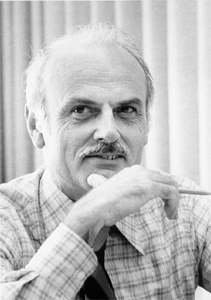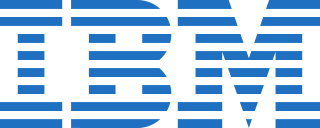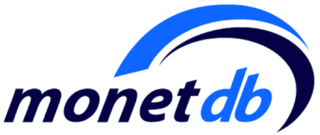
Patricia G. Selinger is an American computer scientist and IBM Fellow, best known for her work on relational database management systems.

Patricia G. Selinger is an American computer scientist and IBM Fellow, best known for her work on relational database management systems.
She received A.B. (1971), S.M. (1972), and Ph.D. (1975) degrees in applied mathematics from Harvard University. [1]
She played a fundamental role in the development of System R, a pioneering relational database implementation, and wrote the canonical paper on relational query optimization. [2] She is a pioneer in relational database management and inventor of the technique of cost-based query optimization. She was a key member of the original System R team that created the first relational database research prototype. [3] [4] [5] The dynamic programming algorithm for determining join order proposed in that paper still forms the basis for most of the query optimizers used in modern relational systems. She also established and led IBM’s Database Technology Institute, considered one of the most successful examples of a fast technology pipeline from research to development and personally has technical contributions in the areas of database optimization, data parallelism, distributed data, and unstructured data management. [6] [7] Before her retirement from IBM, she was the Vice President of Data Management Architecture and Technology at IBM.
Dr. Selinger was appointed an IBM Fellow in 1994, IBM’s highest technical recognition, and is an ACM Fellow (2009) and a Fellow of the American Academy of Arts and Sciences. [8] [9] She was also elected a member of the National Academy of Engineering (1999) for leadership and contributions to relational database technology.
Dr. Selinger has published more than 40 papers, and also received the ACM Systems Software Award for her work on System R. She received the SIGMOD Innovation Award in 2002, the highest ACM award given in the area of data management. [10]
From 2014 through 2016, Dr. Selinger was the Chief Technology Officer at Paradata (Paradata.io) where she worked on challenging problems in data harmonization, curation, provenance, and entity resolution to provide transparency to the supply chain. Paradata technology transforms real-time data into verified insights and executable actions.
From 2017 through 2018, Dr. Selinger served as a Principal Architect at Salesforce.com. She is now retired.

In computing, a database is an organized collection of data or a type of data store based on the use of a database management system (DBMS), the software that interacts with end users, applications, and the database itself to capture and analyze the data. The DBMS additionally encompasses the core facilities provided to administer the database. The sum total of the database, the DBMS and the associated applications can be referred to as a database system. Often the term "database" is also used loosely to refer to any of the DBMS, the database system or an application associated with the database.
A relational database is a database based on the relational model of data, as proposed by E. F. Codd in 1970. A system used to maintain relational databases is a relational database management system (RDBMS). Many relational database systems are equipped with the option of using SQL for querying and updating the database.
Structured Query Language (SQL) is a domain-specific language used in programming and designed for managing data held in a relational database management system (RDBMS), or for stream processing in a relational data stream management system (RDSMS). It is particularly useful in handling structured data, i.e., data incorporating relations among entities and variables.

Edgar Frank "Ted" Codd was an English computer scientist who, while working for IBM, invented the relational model for database management, the theoretical basis for relational databases and relational database management systems. He made other valuable contributions to computer science, but the relational model, a very influential general theory of data management, remains his most mentioned, analyzed and celebrated achievement.

Db2 is a family of data management products, including database servers, developed by IBM. It initially supported the relational model, but was extended to support object–relational features and non-relational structures like JSON and XML. The brand name was originally styled as DB/2, then DB2 until 2017 and finally changed to its present form.
IBM System R is a database system built as a research project at IBM's San Jose Research Laboratory beginning in 1974. System R was a seminal project: it was the first implementation of SQL, which has since become the standard relational data query language. It was also the first system to demonstrate that a relational database management system could provide good transaction processing performance. Design decisions in System R, as well as some fundamental algorithm choices, influenced many later relational systems.

MonetDB is an open-source column-oriented relational database management system (RDBMS) originally developed at the Centrum Wiskunde & Informatica (CWI) in the Netherlands. It is designed to provide high performance on complex queries against large databases, such as combining tables with hundreds of columns and millions of rows. MonetDB has been applied in high-performance applications for online analytical processing, data mining, geographic information system (GIS), Resource Description Framework (RDF), text retrieval and sequence alignment processing.

Ronald Fagin is an American mathematician and computer scientist, and IBM Fellow at the IBM Almaden Research Center. He is known for his work in database theory, finite model theory, and reasoning about knowledge.
Alberto O. Mendelzon was an Argentine-Canadian computer scientist who died on June 16, 2005.
David Maier is the Maseeh Professor of Emerging Technologies in the Department of Computer Science at Portland State University. Born in Eugene, OR, he has also been a computer science faculty member at the State University of New York at Stony Brook (1978–82), Oregon Graduate Center, University of Wisconsin, Oregon Health & Science University (2001–present) and National University of Singapore (2012–15). He holds a B.A. in Mathematics and Computer Science from the University of Oregon and a Ph.D. in Electrical Engineering and Computer Science from Princeton University (1978).

Michael Ralph Stonebraker is a computer scientist specializing in database systems. Through a series of academic prototypes and commercial startups, Stonebraker's research and products are central to many relational databases. He is also the founder of many database companies, including Ingres Corporation, Illustra, Paradigm4, StreamBase Systems, Tamr, Vertica and VoltDB, and served as chief technical officer of Informix. For his contributions to database research, Stonebraker received the 2014 Turing Award, often described as "the Nobel Prize for computing."

Chandrasekaran Mohan is an Indian-born American computer scientist. He was born on 3 August 1955 in Tamil Nadu, India. After growing up there and finishing his undergraduate studies in Chennai, he moved to the United States in 1977 for graduate studies, naturalizing in 2007. In June 2020, he retired from being an IBM Fellow at the IBM Almaden Research Center after working at IBM Research for 38.5 years. Currently, he is a visiting professor at China's Tsinghua University. He is also an Honorary Advisor at the Tamil Nadu e-Governance Agency (TNeGA) in Chennai and an advisor at the Kerala Blockchain Academy in Kerala.
Philip Alan Bernstein is a computer scientist specializing in database research in the Database Group of Microsoft Research. Bernstein is also an affiliate professor at the University of Washington and frequent committee member or chair of conferences such as VLDB and SIGMOD. He won the SIGMOD Edgar F. Codd Innovations Award in 1994, and in 2011 with Jayant Madhavan and Erhard Rahm the VLDB 10 Year Best Paper Award for their VLDB 2001 paper "Generic Schema Matching with Cupid".
Stefano Ceri is an Italian computer engineer and professor of database management at Politecnico di Milano. He has been visiting professor at Stanford University between 1983 and 1990, and received the ACM SIGMOD Edward Codd Innovations Award in 2013.
Anastasia Ailamaki is a Professor of Computer Sciences at the École Polytechnique Fédérale de Lausanne (EPFL) in Switzerland and the Director of the Data-Intensive Applications and Systems (DIAS) lab. She is also the co-founder of RAW Labs SA, a Swiss company developing real-time analytics infrastructures for heterogeneous big data. Formerly, she was an associate professor of computer science at Carnegie Mellon School of Computer Science.

Martin L. Kersten was a computer scientist with research focus on database architectures, query optimization and their use in scientific databases. He was an architect of the MonetDB system, an open-source column store for data warehouses, online analytical processing (OLAP) and geographic information systems (GIS). He has been (co-) founder of several successful spin-offs of the Centrum Wiskunde & Informatica (CWI).
Laura M. Haas is an American computer scientist noted for her research in database systems and information integration. She is best known for creating systems and tools for the integration of heterogeneous data from diverse sources, including federated technology that virtualizes access to data, and mapping technology that enables non-programmers to specify how data should be integrated.

Michael James Carey is an American computer scientist. He currently serves as Bren Professor of Information and Computer Science in the Donald Bren School at the University of California, Irvine.
Volker Markl is a German computer scientist and database systems researcher.